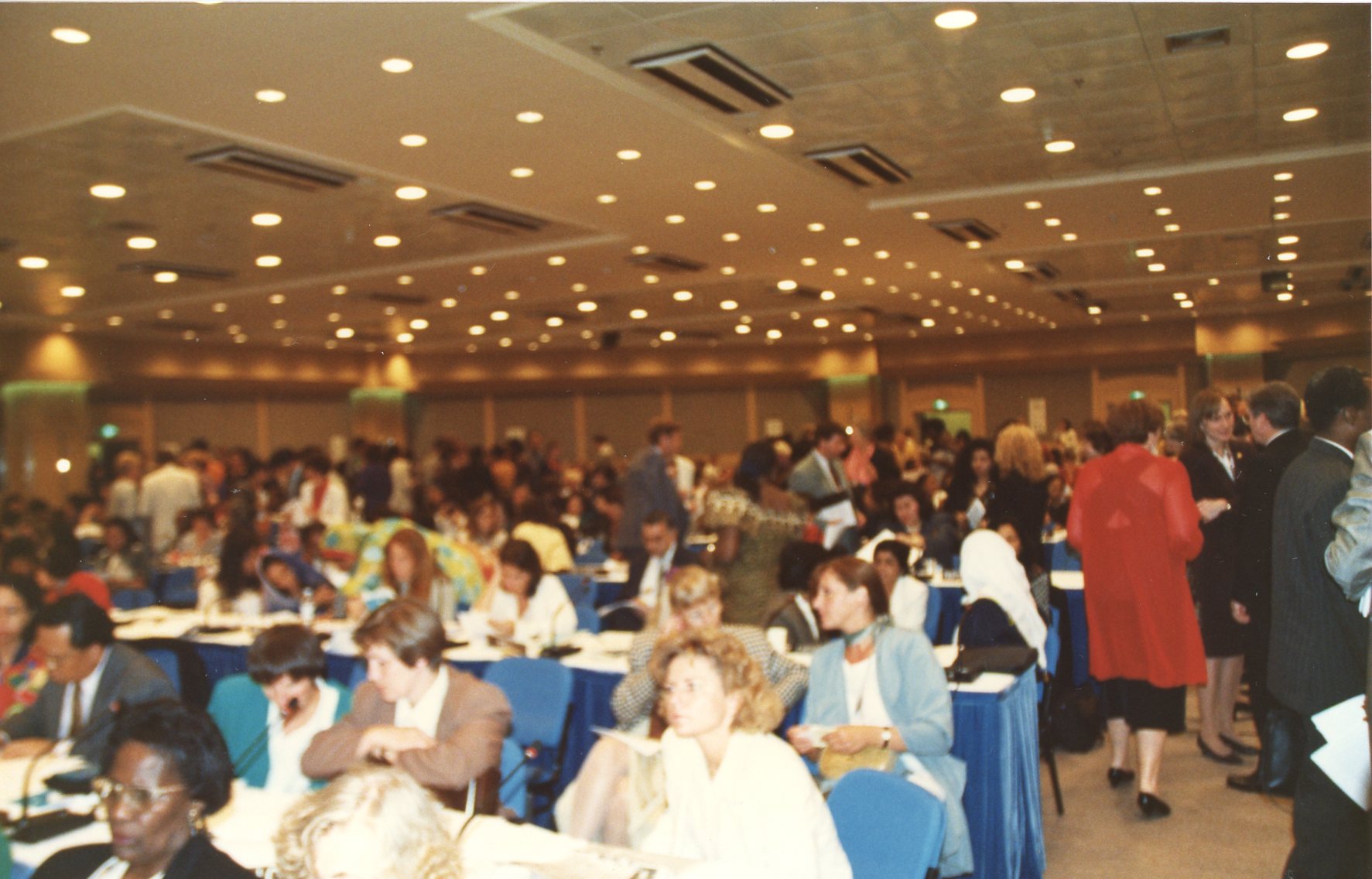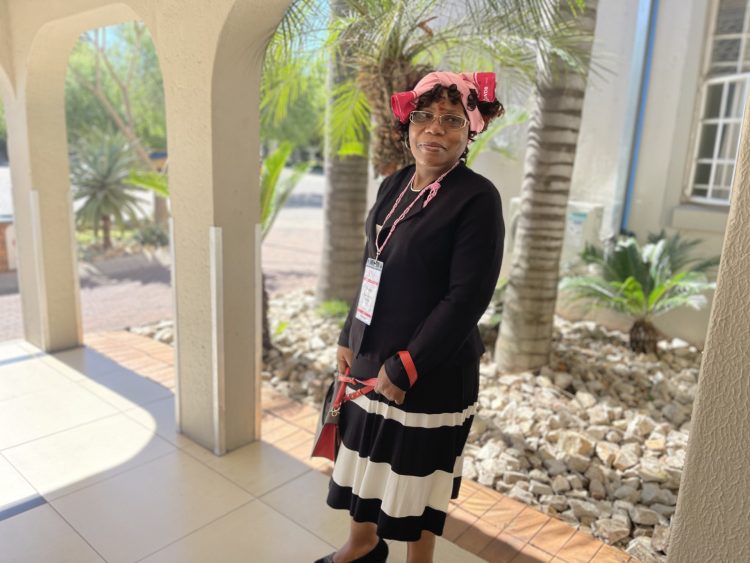HelpAge International is launching a campaign to honour the 30th anniversary of the historic 1995 Beijing Conference by spotlighting remarkable women who attended and helped shape the global gender equality agenda.
Beyond gender equality: Why we must prioritise the rights of older women
In this interview, Paulette Metang, an advocate for older women’s rights and ageing issues from Cameroon, reflects on her experiences at the 1995 Beijing Conference and shares her views on the journey of gender equality, especially the forgotten voices of older women. She calls for continued action, urging that progress be inclusive and reach every woman, regardless of age.
What are your strongest memories from the Beijing Conference in 1995?
Looking back at the 1995 Beijing Conference, my strongest memories are of the immense energy and unity I felt among the women’s and feminist movements. There were women from all over the world, diverse in every way but united in their determination to address the same fundamental issues. The atmosphere was filled with purpose and passion as we all came together around a common cause. I remember feeling a mix of excitement and anger – excited to be part of such a historic moment but also angry about the need for change. I went to Beijing with the goal of learning, so I could bring those lessons back home and push for real change in my community.
How has life changed for women globally since 1995?
There have been significant changes, though the progress has been slow. Women and girls have made strides in education, for example – more girls are in school now than ever before. We’ve also seen improvements in some legal rights, such as married women being able to travel without their husband’s permission. But unfortunately, the changes are often too slow, and women’s rights are still not fully realised in many places.
One area that remains largely overlooked is the situation of older women. They are not included in the conversations about gender equality. They are invisible in policy, media, and social movements, left behind despite the progress that younger women have made.
Gender equality has improved, but the progress has been slow. There are gains, especially in education and the workforce, but these gains are not evenly distributed. In some parts of the world, progress has stagnated, and in others, it has even regressed. It’s especially concerning when it comes to older women, who have been left out of the gender equality conversation altogether.
One of the most positive changes is the growing recognition of women’s rights in law. More and more countries are adopting gender equality frameworks and policies. The #MeToo movement, for example, has brought attention to the rampant abuse women face globally. But we need more than just recognition on paper – we need actions that address systemic barriers and ensure equal opportunities for women of all ages.

Do you feel that older women’s rights are being promoted and protected? Do you think their voices and experiences are included in the achievement of gender equality?
No, older women are not enjoying their human rights, and their voices are largely excluded. They face double discrimination – because of their gender and their age. Their experiences, needs, and rights are ignored. It’s as if they become invisible once they reach a certain age, even though they’ve contributed significantly to society and still have much to offer.
What are the biggest barriers to achieving gender equality for older women?
The biggest barriers include societal stereotypes and ageism, both of which marginalise older women. In many places, there’s a belief that once a woman reaches a certain age, she becomes irrelevant. This thinking needs to change. We must create an inclusive environment where women of all ages can contribute, be heard, and live their lives with dignity and respect.
Has the Beijing Declaration and Platform for Action lived up to the hopes you had at that time? Do you see any gaps in its implementation?
Yes, the BPfA was groundbreaking, and I’m proud to have been a part of that historic moment. But looking back, I see a significant gap: the exclusion of older women. When I attended the conference, I was a young woman full of hope and ambition. Today, as an older woman, I see that the rights of older women have been forgotten in the fight for gender equality. This is a gap that urgently needs to be addressed.
30 years on, has your perspective on gender equality and empowerment changed? Are you more hopeful or less hopeful?
I am more hopeful. Despite the slow progress, I see more women today – young and old – fighting for change. We are not giving up. The fight for gender equality is far from over, but the more we speak out and demand change, the closer we get to a world where every woman, regardless of age, has equal rights and opportunities.
Looking ahead, as we mark 30 years since the Beijing Conference, what message would you share about the journey you’ve been on in the campaign to achieve equality for women of all ages?
Older women’s voices must be heard. They must be included in every conversation about gender equality, because they count. They must age with rights. It’s time for us to ensure that no woman is left behind in the fight for gender equality.
 Paulette Metang is an advocate for older people’s rights and ageing issues in Cameroon. For over 30 years, she has led and participated in major events addressing the challenges facing older people. As the founder and CEO of ACAMAGE and the Older Women Network in Cameroon, Paulette has been a strong voice for the inclusion of older women, who continue to be left behind.
Paulette Metang is an advocate for older people’s rights and ageing issues in Cameroon. For over 30 years, she has led and participated in major events addressing the challenges facing older people. As the founder and CEO of ACAMAGE and the Older Women Network in Cameroon, Paulette has been a strong voice for the inclusion of older women, who continue to be left behind.
Her organisation, ACAMAGE has been a HelpAge network member since 2002, and Paulette also serves on the GAROP Steering Group. She has also founded CANA HOME, an older people’s care home in her country.
